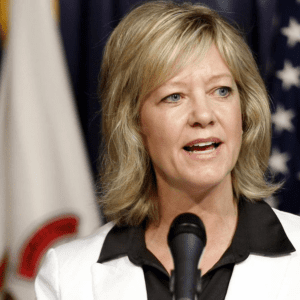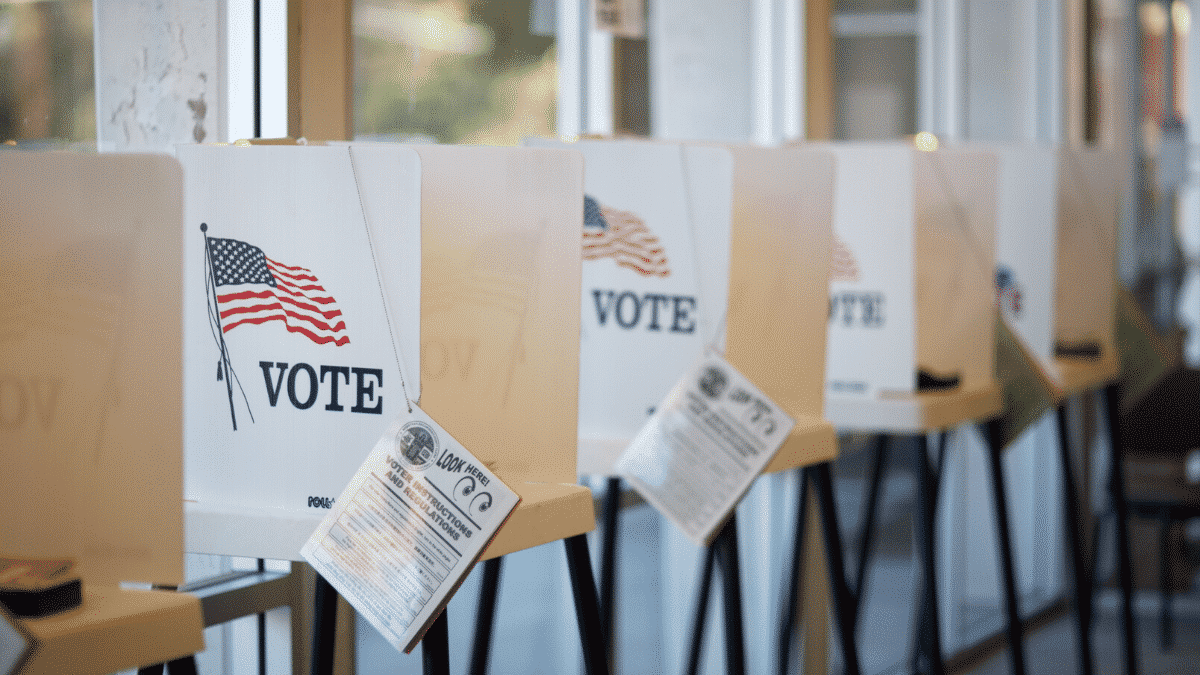A Plagiarism Warning for Politicians
It's past time for campaigns to pay attention to plagiarism...

Last week, Bill Ruthhart at the Chicago Tribune published an article that accused Illinois Republican congressional candidate Jeanne Ives of plagiarism.
The allegations were remarkably straightforward. Two days prior, Ives’ campaign sent out an email critical of mail-in voting. As part of that email, they included a 63-word passage that was lifted near-verbatim from an article published by the Chicago Tribune previously.
When pressed about the plagiarism, the campaign’s communication director, Kathleen Murphy, took responsibility for the plagiarism saying that “The line (that) was included is my fault, not Jeanne’s. I am the director of communication for the campaign, the content of an email is my responsibility.”
She went on to say that it should have been cited and that its inclusion was an “oversight”. She further promised to review outgoing emails more closely moving forward.
The case, ultimately, is about the most minor any national-level political plagiarism scandal can be. A congressional candidate is accused of sending out a short plagiarized passage in a seemingly routine email to her followers. It’s further mitigated by the fact that her staff has accepted responsibility.
But, despite its relatively minor nature, the story has attracted modest media attention and provided for a distraction to a campaign that, as of right now, is behind in the polls.
However, the more important element to the story is the warning it provides politicians at all levels: The media, your opponents and the public at large are all watching what you say and one of the things they are looking for is plagiarism. Any plagiarism.
Lessons from Campaigns Gone By

Any time plagiarism in politics comes up, the 1987 Joe Biden plagiarism scandal is, inevitably, one of the first topics of discussion.
Though it wasn’t the first political plagiarism scandal, it is seen as a turning point for plagiarism in politics as it brought an end to Biden’s flagging Presidential campaign. It was also featured heavily in attack ads by fellow Democrat Michael Dukakis and made plagiarism a national issue.
Since then, it hasn’t really gone away. In 2016, for example, Melania Trump was accused of plagiarizing portions of her speech at the Republican National Convention from a similar speech by Michelle Obama. Though the story ultimately had little bearing on the outcome of the election, it dominated the news cycle for several days.
Even in 2020, the cycle continues with former Democratic Presidential candidate Michael Bloomberg facing allegations that he plagiarized parts of at least eight of his plans. His campaign failed to gain much traction and, even though it was likely only a small part, it’s unlikely that allegations of plagiarism helped turn that around.
But all of these stories involve much bigger stages and much more significant allegations of plagiarism. Ives’ plagiarism is a much smaller plagiarism in a less important work that was presented on a much smaller stage. This doesn’t excuse the plagiarism, but it makes it remarkable that it was caught at all or that it generated any headlines.
However, it was caught and it has become a news story and that should worry politicians elsewhere in the United States as we enter the depths of the 2020 campaign season.
A Simple Warning
Disclosure: While I perform plagiarism analyses as part of my consulting practice and would be willing to work with a campaign, I have not been asked to do so as of this writing.
The warning here is very simple: Politicians have to assume every public word, whether written or spoken, is being checked for plagiarism and that such plagiarism can come back to haunt the campaign.
While it is true that plagiarism scandals are not quite the serious matter they were previously, they are one of the easiest scandals to avoid and there is literally no excuse for even minor plagiarism in campaign materials.
Plagiarism detection software is both highly accessible, affordable and easy to use. Looking at Ives’ case, for example, simply running the email through a reputable plagiarism detection tool would have likely spotted the passage and given her communications director a chance to fix it before it was sent out. The whole story would have been avoided.
Though the ideal would be to have an independent party verify the authenticity of all outgoing content, that would likely be cost-prohibitive for smaller campaigns, which often have all-volunteer or mostly-volunteer staffs. For those, simply running a plagiarism check before hitting publish would probably go a long way to preventing such scandals.
Yes, such verifications would require time and resources, two things in short supply in any campaign, but its far less than the resources needed to undo the damage after such a scandal comes to light.
While it’s understandable that plagiarism may not be the highest focus for political campaigns right now, the lack of any attention to is practically inviting disaster. This is especially true since it can be very difficult, if not impossible, to predict which scandals capture the public’s imagination and become much larger ordeals. Where one candidate might easily shrug off a plagiarism story another may not.
Plagiarism is a situation where an ounce of prevention is worth far more than a pound of cure. It’s an error that’s so simple to prevent that it’s just not worth the risk.
Bottom Line
The Ives’ plagiarism story is, ultimately, about as dumb as such a story can get. There was no reason to plagiarize the passage, attribution likely would have helped make the arguments more convincing and the amount of content that was copied wasn’t enough to save any significant time or effort.
It’s likely that the plagiarism wasn’t intentional but, as with all nearly accidental plagiarism, plagiarism only happens this way if one is being so reckless with their writing that it reaches a point of negligence. Failure to follow good writing practices such as citing as you write, not mingling notes with your writing and proper paraphrasing are not accidents. A communications director for a congressional campaign should be following them.
While it’s likely nothing major will come of this story, it should still serve as a warning to other candidates and their campaigns. All eyes are on your words and that includes the ones that are plagiarized.
While it would be nice to get through the 2020 campaign season without another plagiarism story, I think we all know that won’t happen. There are too many campaigns, too much writing and too many opportunities for trouble.
Still, there’s no reason that there has to be another plagiarism story. They’re easily avoided if campaigns are willing to invest the meager resources required to prevent them.
Want to Reuse or Republish this Content?
If you want to feature this article in your site, classroom or elsewhere, just let us know! We usually grant permission within 24 hours.
